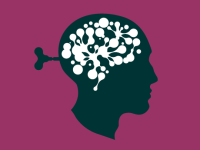5-Minute Film Festival: Genius Hour
This collection of short videos explores “Genius Hour,” a method that gives students one hour per week to focus on a project of their choice. Imagine what your students can do when they’re able to pursue their interests in the classroom!
Imagine if you were allowed to use a whole workday every week to explore any project you wanted. With no restrictions on your time or what you could do, think of the ideas you could come up with and the things you could learn about! In the workplace, this practice is called 20 percent time. It first gained widespread notice at Google, but many companies have allowed employees to work on side projects as a way of fostering innovation.
Since it's not often possible for teachers to sacrifice an entire day of schooling to allow for individual creative pursuits, the idea has been reinterpreted in many schools as a "Genius Hour," where students get one hour per day or week to focus on a project of their choice. The practice combines well with classroom pedagogies such as project-based learning and inquiry-based learning. To find out more about what 20 percent time is and how to use it, watch the playlist below!
Video Playlist: 20 Percent Time in the Classroom
Watch the first video below, or watch the whole playlist on YouTube.
- Don't call it a classroom: Kevin Brookhouser at TEDxMonterey by TEDx Talks (16:06)
Kevin Brookhouser is one advocate of the Genius Hour method. He calls his approach to projects "20Time." In this TEDxMonterey talk, he explains how allowing students to pursue their own interests can inspire curiosity in other areas of life.
- Introduction to Genius Hour in the Classroom by Chris Kesler (3:09)
If you've never heard of 20 percent time or the "Genius Hour" movement, this cute hand-animated video by Chris Kesler, the founder of GeniusHour.com, will give you a good overview of what makes an effective school-based 20 percent time project.
- I want to do Genius Hour... now what? by NHS Innovation Class (3:48)
As with any teaching method, there are some challenges to using 20 percent time in schools. In this video, Don Wettrick, author of the book Pure Genius, talks frankly and honestly about some potential roadblocks you might face along the way.
- 2014 #20Time Projects in 4 minutes by Kevin Brookhouser (3:50)
All of the students in Kevin Brookhouser's humanities classes completed a project. This cool compilation video shows each student pitching his or her idea. From short stories to film projects to science experiments, these students did it all!
- Shannon Deegan: How Google's 20 Percent Time Fosters Innovation by SHRM We Know Next (2:33)
Google's Director of People Operations, Shannon Deegan, talks about why the company decided to implement 20 percent time and how it works, giving some examples of products that started as 20 percent time side projects.
- Genius Hour project (special feature dreams of a Lego man) by GStudiosStopmotion (6:01)
Video projects lend themselves particularly well to the Genius Hour approach. This amazing student-created stop-motion video was produced for a class project. Watch as Gianni explains the stop-motion process and uses it to explore the life and times of a Lego character.
More Resources for Using Genius Hour in the Classroom
Curious about Genius Hour, in the workplace or the classroom? Whether you're interested in trying Genius Hour for a semester or a year, there is a large community of like-minded teachers ready to help you.
- "What is Genius Hour?" by Chris Kesler, GeniusHour.com
- "How 3M Gave Everyone Days Off and Created an Innovation Dynamo" by Kaomi Goetz, FastCo Design
- "6 Principles of Genius Hour in the Classroom" by Terry Heick, Te@chThought
- "Turn Genius Hour Into Genius Year" by Jennifer Bernstein, Edutopia
- "What is 20 Percent Time? A Conversation with A.J. Juliani" by Jennifer Gonzalez, Cult of Pedagogy
- "20 Tips for Putting Google's 20 Percent Time in Your Classroom" by Stephen Noonoo, eSchool News
- "6 Tips for Getting Started with Genius Hour" by Nichole Carter, discussion post on Edutopia
- Liberating Genius ebook by Angela Maiers, from Choose 2 Matter
